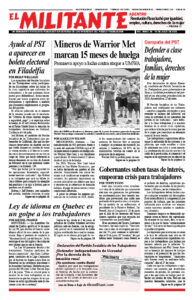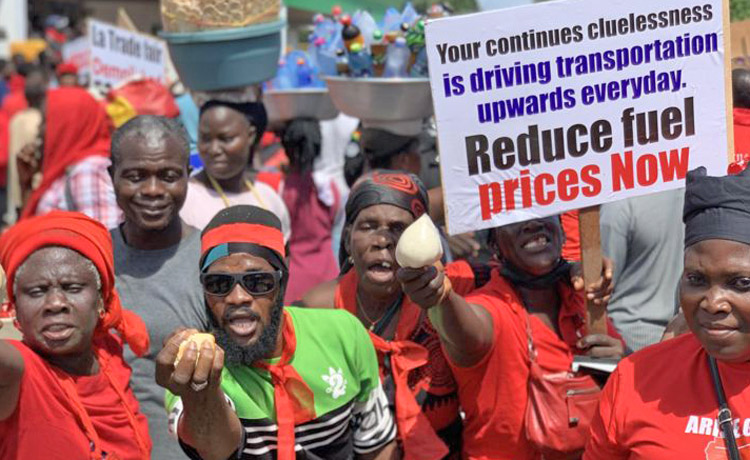Four teachers’ unions in Ghana, West Africa, went on strike July 4 after the government refused to pay teachers and nonteaching staff a cost-of-living allowance of at least 20% of their wages. Annual inflation in the country is now 27.6%. Unions involved are the Ghana National Association of Teachers, the National Association of Graduate Teachers, the Teachers and Educational Workers Union and Coalition of Concerned Teachers.
The strike comes on the heels of street protests June 28-29 in the capital, Accra, above, against the high cost of living. Hundreds joined the actions.
“We can’t afford rent and we’re sleeping outside. The youths are jobless,” taxi driver, Yaw Barimah, told the press. Barimah is a member of Arise Ghana, which organized the protests. Among demonstrators’ demands is a call to abolish a new 1.5% tax imposed on electronic transactions. Police fired tear gas and used water cannons on demonstrators, arresting 29. Ghana’s national currency, the cedi, has lost 22% against the dollar this year, lowering the value of workers’ wages.


